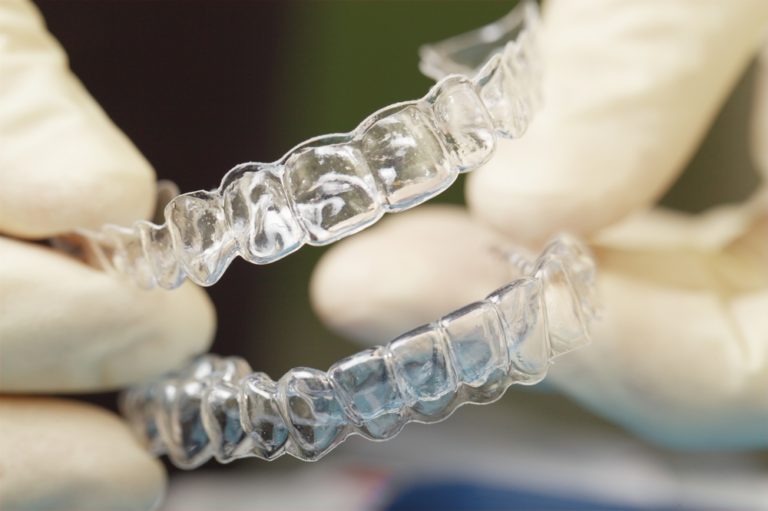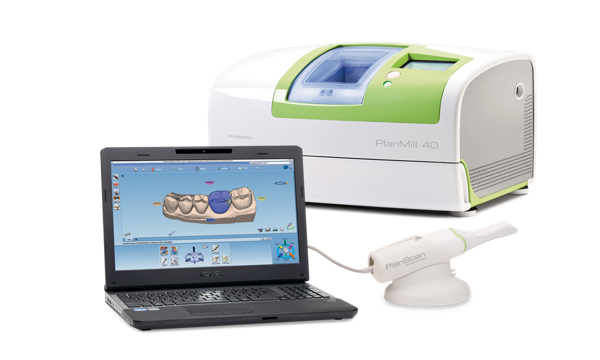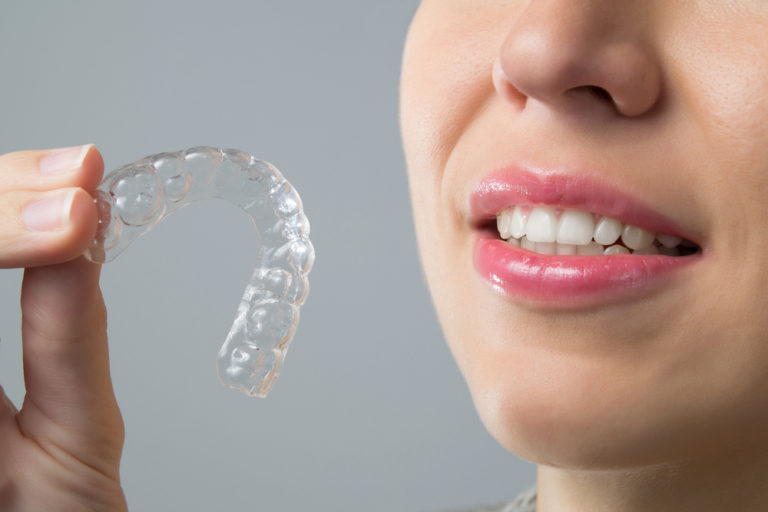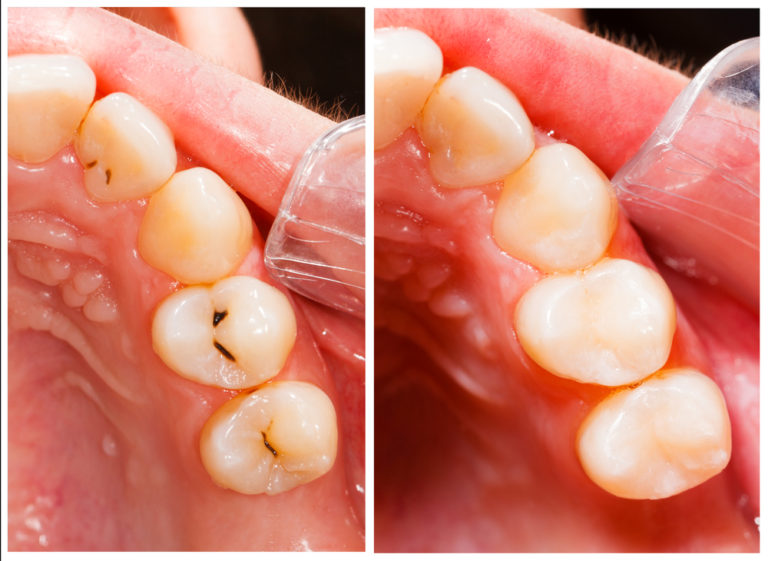A bite guard is a dental appliance custom-fit to a patient’s teeth. Bite guards serve varying purposes and are often recommended for use in patients of all ages. It is important that bite guards be professionally fit, rather than purchased over the counter, as this ensures maximum comfort and protection during wear. Professional dental guards are usually prepared in a dental lab using an oral impression taken in a dentist’s office. These guards are created uniquely to each patient to prevent discomfort, slippage or inadequate protection. There are many reasons why a dentist would prescribe a mouth guard to a patient. They include:
- To protect the teeth, tongue and cheeks during sports and high-impact activities
- To protect the teeth from nighttime grinding or clenching
Did you know?
Caring for a dental bite guard is simple. You’ll need to rinse it before and after every usage using a soft-bristled toothbrush, toothpaste and cold water. From time to time, cleanse it with cold water and a mild soap. When not in use, store your mouth guard in a hard, ventilated container and keep it away from hot temperatures that could cause your guard to warp.
Common Symptoms
Bite guards can address various dental issues, including:
- Teeth grinding (bruxism)
- Jaw pain or soreness
- Headaches
- Tooth sensitivity
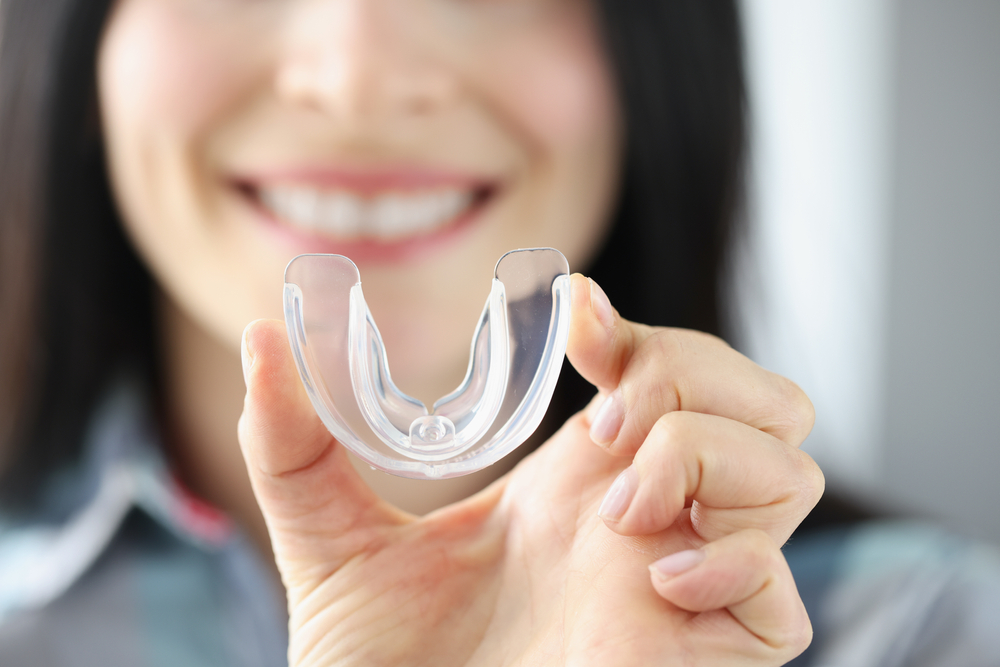
Why Bite Guards are Needed
Bite guards are essential because they:
- Protect your teeth from grinding and clenching forces
- Prevent wear and tear on tooth enamel
- Relieve jaw pain and tension
- Alleviate headaches associated with teeth grinding
Treatment Process
Our experienced team at Fedorciw, Massoumi & Guerette follows a meticulous approach to provide you with effective bite guards:
- Assessment: We conduct a thorough examination of your teeth and jaw to determine the best type of bite guard for your needs.
- Customization: We take precise impressions of your teeth to create a custom-fit bite guard tailored to your unique smile.
- Fitting: Once your bite guard is ready, we ensure it fits comfortably and securely.
- Education: We will guide you on how to wear and care for your bite guard.
Prevention
To maintain the longevity of your bite guard, follow these preventive tips:
- Clean your bite guard regularly
- Store it in its protective case
- Avoid exposing it to high temperatures
Outlook
Bite guards can significantly improve your oral health and quality of life. You can expect relief from symptoms such as teeth grinding, jaw pain, and headaches.
Frequently Asked Questions
Do I need a bite guard?
You absolutely need to be fit for a custom bite guard if you participate in sports or activities that put your oral health at risk. These guidelines also apply to children, who often play sports like football or participate in activities like martial arts, which can cause tooth-related injuries. You may also need a bite guard if your dentist diagnosis you with bruxism, or tooth-grinding. Over time, grinding or clenching the teeth can lead to wear and irreversible damage. Sleeping with a bite guard can protect the teeth from these unwanted side effects.
What should I expect when being fit for a dental bite guard?
Being fit for a bite guard is simple. You’ll visit your dentist, who will take an impression of your teeth and send it off to a dental laboratory. The lab will carefully construct a durable and comfortable new bite guard that you can pick up at your dentist’s office in just days.
Will I need to return to my dentist after getting my new bite guard?
Yes. Although custom bite guards are made of durable materials and designed to last through many uses, they do need to be replaced from time to time. Keep an eye on your bite guard, checking it frequently for wear. Also, bring it with you to your normal dental cleanings and check-ups for a professional inspection. Be sure to tell your dentist if your bite guard no longer offers an optimal fit or if it has become uncomfortable to wear.
Protect Your Smile with Us
Don’t let teeth grinding and jaw pain affect your quality of life. Contact Fedorciw, Massoumi & Guerette at 860-635-4666 to schedule a consultation and take the first step toward a healthier, pain-free smile.


